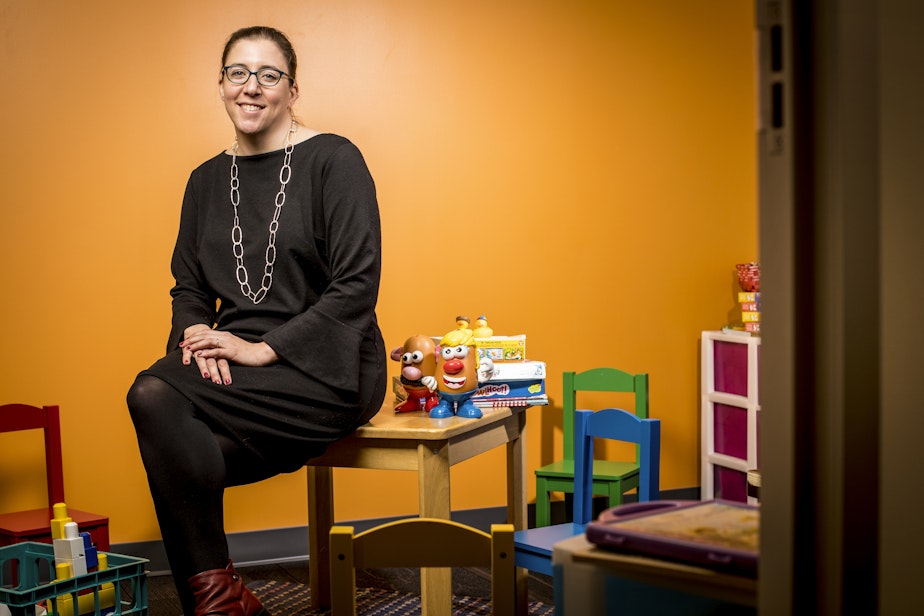What this researcher was surprised to learn about trans kids

Kim Malcolm talks with University of Washington associate psychology professor Kristina Olson about her research into transgender kids. On Thursday, Olson was honored with the National Science Foundation's Alan T. Waterman award, which includes a $1 million research grant.
Olson says the funding will be used to expand the TransYouth Project, and to establish a mentorship program for LGBTQ students, and others who are underrepresented in the field of science.
With this research, what are you hoping to learn?
Olson: Our goal is to understand what their development looks like in terms of their gender and mental health. Because this is the first cohort that's socially transitioning so early, we want to be able to follow these pioneers of gender development to see what we can learn about everyone's gender development.
You’re five years into this research. What have you learned that may have taken you by surprise?
Sponsored
What’s surprising to me is how much this cohort of transgender kids looks like every other kid.
Transgender adults and adolescents often have very high rates of anxiety and depression. And so we thought we might see some of that in our young transitioned kids as well. But that's not the case. We found that our transgender kids have really good mental health. They look just like all their other peers who aren't transgender, and they have gender development that looks completely average or typical for any other kid who shares their gender
What do you attribute this to?
There are a lot of things that are unique about our cohort of kids. These are some of the first kids to actually be living as their gender in everyday life. That means they maybe change their hairstyles, their clothing and the pronouns they use in everyday life. That's the biggest difference between them and other transgender people - that they're having this intervention so early in development
But also our kids are unique in that they have families who support these identities really early.
Sponsored
Give us the bigger picture here. What are you ultimately hoping to learn from this project?
We're really interested in understanding where the concept of gender identity comes from in the first place.
In my work in general, the kind of questions that guide it have to do with how a kid looks out into the world and sees the social categories – gender or race, and how they figure out their places within those social categories.
And why do you think that's important?
Dividing the world into categories is what we as humans have a tendency to do. And it tends to drive a lot of the good and bad behaviors that we see in people. Everything from trade wars to civil wars to intergroup negotiations in a team - those all have to do with the fact that we have this tendency to divide the world into us and them.
Sponsored
Coming to understand where that comes from and how young children think about that is really important to basically every conflict that involves more than two people in the world.


